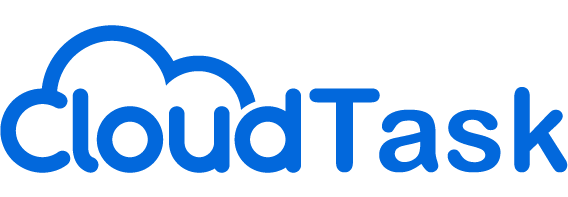Listen to this podcast on your favorite platform
In episode #133 of the Transform Sales Podcast, we delve into Aircall, a cloud-based phone system specifically designed for sales organizations. The host welcomes Elizabeth Beggs from Aircall, who provides an in-depth look at the platform’s features and benefits tailored for B2B sales environments. Elizabeth elaborates on how Aircall seamlessly integrates with CRM systems, significantly enhancing call efficiency and equipping sales teams with powerful tools such as the power dialer and caller insight card. She underscores Aircall’s straightforward configuration process, exceptional call quality, and optimal fit for small to medium-sized businesses. The episode features a live demo showcasing Aircall’s intuitive interface, followed by a detailed discussion on pricing structures. It wraps up with a compelling call to action for B2B sales professionals interested in leveraging Aircall to boost their sales operations.
In case you missed it.... these are the highlights
What is Aircall, and how would you describe it?
Aircall is a 100% cloud-based phone system designed to manage both inbound and outbound calls. It seamlessly integrates with existing CRM and helpdesk tools, ensuring users don’t need to manually enter information. This integration allows sales and support teams to work more efficiently, as all relevant data is pulled directly into the system during calls.
The platform is user-friendly and visually intuitive, making it easy to set up and use without requiring advanced technical knowledge. Aircall is built to enhance productivity by providing features like click-to-dial, power dialer, and caller insight cards, which streamline the calling process and improve overall workflow for customer-facing teams.
What type of buyers does Aircall serve best?
We serves a diverse range of industries and is designed to be industry-agnostic, meaning it can be effectively utilized across various sectors. We primarily focus on industries such as software, e-commerce, transportation, and professional services, where efficient communication is critical. Our primary target market includes small to medium-sized businesses (SMBs) that require robust, flexible, and easy-to-use phone systems to enhance their customer interactions and streamline their operations.
Within these industries, our platform is particularly beneficial for customer-facing teams, including both sales and support roles. These teams often spend significant amounts of time on the phone, and Aircall’s comprehensive set of features is tailored to meet their needs. For sales teams, tools like click-to-dial and power dialer create efficiencies in making outbound calls, while features like caller insight cards provide valuable context for incoming calls, helping sales representatives engage more effectively with prospects and clients. For support teams, the seamless integration with CRM and helpdesk tools ensures that all relevant customer information is readily available, reducing the need for manual data entry and enabling faster, more informed responses to customer inquiries. Overall, the platform’s ability to connect with the tools these teams use daily makes it an invaluable asset for any organization looking to enhance its communication capabilities and improve overall efficiency.
What does Aircall help them do that they couldn’t do before Aircall existed?
We provide several key capabilities that significantly enhance the efficiency and effectiveness of sales and support teams, capabilities that were much more cumbersome or even impossible to achieve before its existence.
Firstly, Aircall’s seamless integration with CRM and helpdesk tools means that all relevant customer information is automatically pulled into the system during calls. This eliminates the need for manual data entry, saving time and reducing errors. Sales and support agents can access vital customer information instantly, allowing them to engage more effectively and provide personalized service.
Secondly, features like click-to-dial and power dialer streamline the process of making outbound calls. Agents no longer need to manually dial numbers, which speeds up the calling process and allows for a higher volume of calls. The power dialer, in particular, enables agents to efficiently manage large call lists by automatically dialing the next number as soon as the current call ends.
Additionally, the platform’s caller insight cards provide agents with real-time information about incoming callers, including context from previous interactions. This feature ensures that agents are always prepared and can handle calls with the necessary background information, enhancing the overall customer experience.
Finally, for managers, we offer detailed analytics and reporting tools that provide insights into call activity and agent performance. This allows managers to monitor and coach their teams more effectively, ensuring that performance standards are met and identifying areas for improvement.
Overall, our innovative features and integrations enable organizations to handle their communication needs more efficiently and effectively than ever before.
How should users measure success with Aircall?
Users should measure success with Aircall by focusing on several key metrics and performance indicators that reflect both the efficiency and effectiveness of their communication processes. Here are some essential metrics to consider:
- Call Volume and Efficiency: Track the number of inbound and outbound calls handled by each agent. Increased call volume, coupled with shorter call durations and higher first-call resolution rates, indicates improved efficiency.
- Call Quality and Customer Satisfaction: Utilize Aircall’s call recording and monitoring features to assess call quality. Gather customer feedback through post-call surveys or Net Promoter Score (NPS) to gauge customer satisfaction and identify areas for improvement.
- Integration and Data Accuracy: Measure the seamlessness of data integration with your CRM or helpdesk. Check for reduced instances of manual data entry errors and ensure that customer information is consistently accurate and up-to-date.
- Agent Productivity: Monitor key productivity metrics such as the number of calls made per hour, average call handling time, and the effectiveness of click-to-dial and power dialer features. Increased productivity indicates successful utilization of Aircall’s tools.
- Conversion Rates and Sales Metrics: For sales teams, track metrics like call-to-conversion rates, deal closure rates, and average deal size. An improvement in these metrics demonstrates that Aircall is helping your team engage more effectively with prospects and close more deals.
- Response Times and Resolution Rates: For support teams, measure response times to customer inquiries and the rate of first-call resolutions. Faster response times and higher resolution rates indicate enhanced support efficiency.
- Team Collaboration and Training: Use Aircall’s reporting and live activity feed to evaluate team collaboration and identify training needs. Regularly review performance reports to provide targeted coaching and support to agents.
- Overall Cost Savings: Compare the costs of using Aircall with previous communication systems. Consider factors such as reduced manual entry time, improved call handling efficiency, and better customer satisfaction leading to increased loyalty and repeat business.
By regularly monitoring these metrics, users can gain a comprehensive understanding of how Aircall is contributing to their business goals, enabling them to make data-driven decisions and continually optimize their communication strategies.











